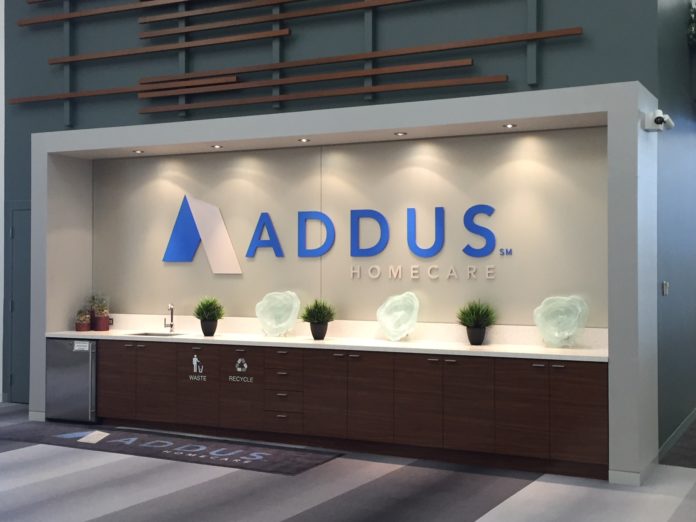Addus HomeCare Corp. (Nasdaq: ADUS) leaders still believe the Medicaid Access Rule missed the mark. But that doesn’t mean they won’t take advantage of it.
The company is regularly building out its personal care footprint, expanding it in some areas and bolstering it in others. If consolidation is a result of the Medicaid Access Rule’s 80-20 provision, Addus would be a likely beneficiary.
“There are other points worth making on the rule and its impact,” Addus CEO Dirk Allison said on the company’s first-quarter earnings call Tuesday. “We continue to believe the rule disproportionately impacts small providers and encourages scale, which will lead to further consolidation opportunities.”
Based in Frisco, Texas, Addus provides personal care, home health care and hospice care to over 49,000 consumers through 214 locations spanning 22 states.
Allison pointed out that exemptions for smaller providers – to pay caregivers less – would also give Addus the opportunity to gain a greater share of the labor market, a potential unintended consequence of the 80-20 provision and its exemptions.
The 80-20 provision, if implemented, will require scale, he noted.
That’s why Addus will continue to build more scale in each of its personal care markets, but also why it believes small providers will have trouble complying.
“Of course, we and other providers are disappointed with the result,” he said. “Even though we support the overall policy aim at providing higher wages and increasing access to home- community-based services.”
Allison also laid out some of the positives that came about between the Medicaid Access Rule’s proposal and its finalization in late April.
For one, the timeline switching from four years to six years until implementation was recognized as a positive.
Certain costs such as mileage, PPE and training will also be deduced prior to 80-20 calculations, which is also a positive for providers. The “direct care worker” umbrella now includes clinical supervisors, too, and states have the liberty to adjust what goes where in the 80-20 calculation – at least to a certain extent.
“All of these changes combined to lessen the potential impact of the rule on our margin,” Allison said.
Still, given the administration turnover that could materialize over six years, Addus is not yet convinced that the 80-20 provision will become mandated in six years time.
“Realistically, we believe [the timeline] substantially increases the likelihood that the rule will not be implemented in its current form,” Allison continued. “For a variety of reasons, including as a result of legal or Congressional action, or potential administration changes in either of the next two presidential election cycles.”
In the first quarter, Addus’ overall net service revenues grew by 11.6% year over year, to $280.7 million.
Personal care revenues in the fourth quarter saw a 9.5% year-over-year increase. Home health revenue increased by over 35.2%, while hospice saw an 13.8% increase.
M&A, MA and staffing
Addus’ modus operandi has not changed when it comes to growth, particularly through acquisition.
“We are currently in the process of looking at personal care opportunities that would give us a larger presence in our current states,” Allison said. “We are also looking for opportunities where we can enter new states in a material way. Personal care is a valuable service to our elderly and disabled population, and we are optimistic that states will evolve their programs to remain viable, regardless of the rule.”
Though home health remains a small part of Addus’ business – about 6% of revenue – it plans to continue to layer it onto its personal care markets to increase value-based care capabilities.
“It remains our primary focus to use our financial capacity to acquire strategic operations that align with our overall growth strategy of adding clinical services where we have strong personal care presence,” Allison said. “This acquisition strategy will continue to strengthen our ability to participate in value-based contracts with our payers and to adapt to potential reimbursement changes.”
In regards to hiring, Addus’ first quarter mirrored its first quarter in 2023. The company is netting about 84 hires per business day. That’s also up about 5% over the fourth quarter.
Allison also suggested that, while Medicare Advantage penetration continues to affect Addus in its home health segment, he believes there has been some leveling off in that area.
“We continue to be affected by the movement of Medicare beneficiaries from Medicare fee-for-service to Medicare Advantage, but we feel we may be seeing a leveling off of this shift in the markets we currently serve,” he said. “We are continuing to work with our Medicare Advantage payers to obtain higher rates.”




